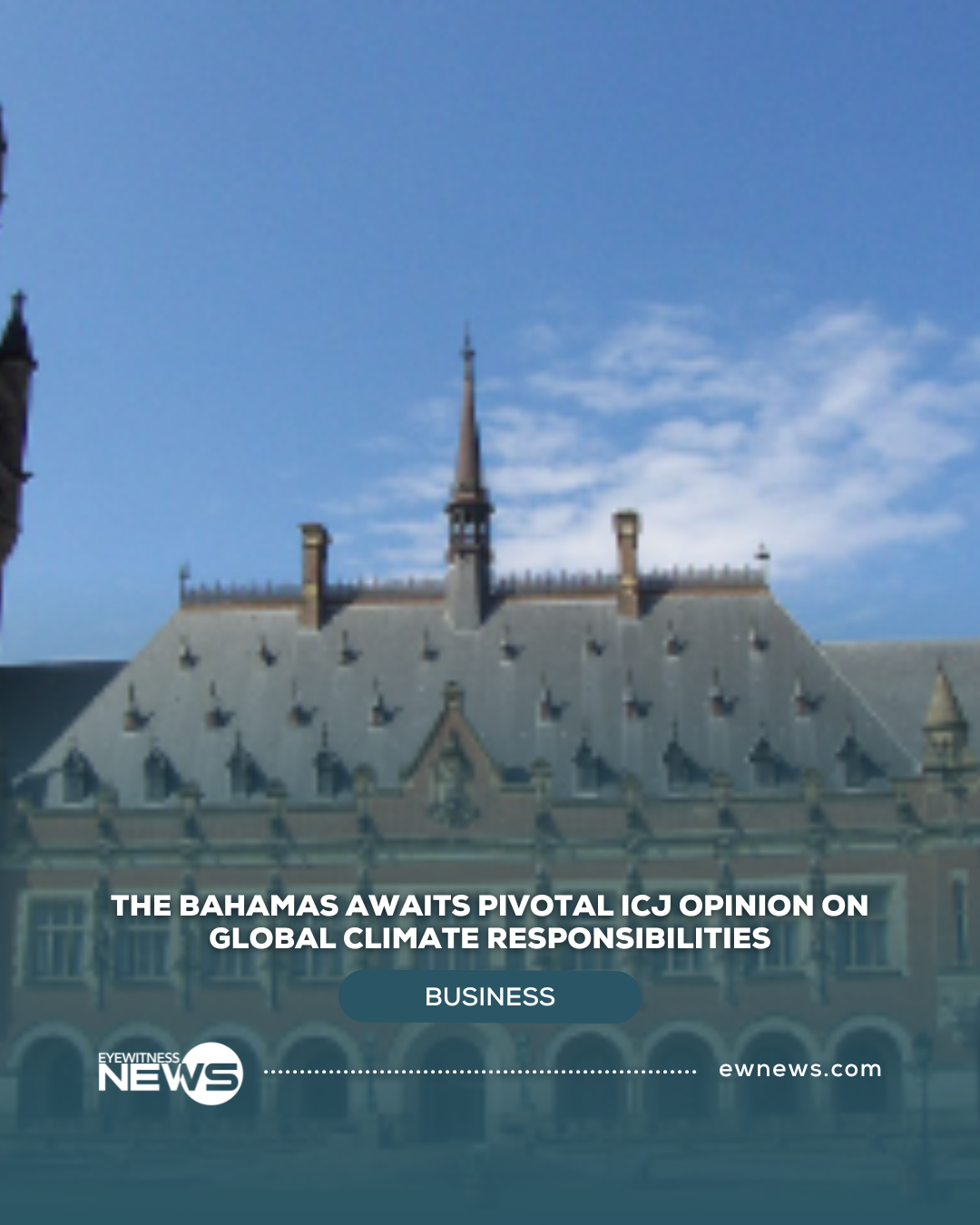NASSAU, BAHAMAS- The Bahamas is among several small island nations anxiously awaiting a landmark ruling today from the International Court of Justice (ICJ) on countries’ legal responsibilities to combat climate change.
The International Court of Justice (ICJ) is today expected to deliver a landmark advisory opinion on the legal obligations of states to address climate change — a case brought forward by small island developing states (SIDS), including The Bahamas, which are on the frontlines of the global climate crisis.
The case was initiated by Vanuatu and backed by a coalition of states under the Alliance of Small Island States (AOSIS) — a negotiating bloc that represents 39 SIDS. These nations are seeking legal clarity on countries’ duties to curb greenhouse gas emissions and the consequences for those whose actions are causing significant harm to the climate system.
The anticipated opinion, while non-binding, could have far-reaching implications for international law, potentially reinforcing the principle that countries have a responsibility not to cause environmental harm beyond their borders.
Prime Minister Philip Davis has been a consistent advocate for climate justice, urging major polluters to take responsibility and support small island nations facing climate impacts.
In oral arguments before the ICJ, Attorney General Ryan Pinder detailed the grave realities confronting The Bahamas. He cited the devastating impact of Hurricane Dorian in 2019, which caused $3 billion in damages — a staggering 25 percent of the national economy — displaced thousands, and took dozens of lives.
He described how Dorian’s 20-foot storm surge devastated communities, destroyed homes and infrastructure, and left lives in turmoil. Over 80 percent of The Bahamas lies less than 1.5 meters above sea level, he warned, making the country dangerously exposed to rising tides and extreme weather.
AOSIS, in a statement Tuesday ahead of the court’s opinion, said the ruling is expected to “foster enhanced accountability and drive support to address the disproportionate impacts of climate change which our SIDS are forced to endure.”
AOSIS emphasized the importance of reinforcing the global climate framework, including the Paris Agreement and the UN Framework Convention on Climate Change (UNFCCC), with a renewed legal foundation. “Time is running out,” the bloc warned. “We need strong leaders to demonstrate the necessary political will and put forth the highest ambition.”






